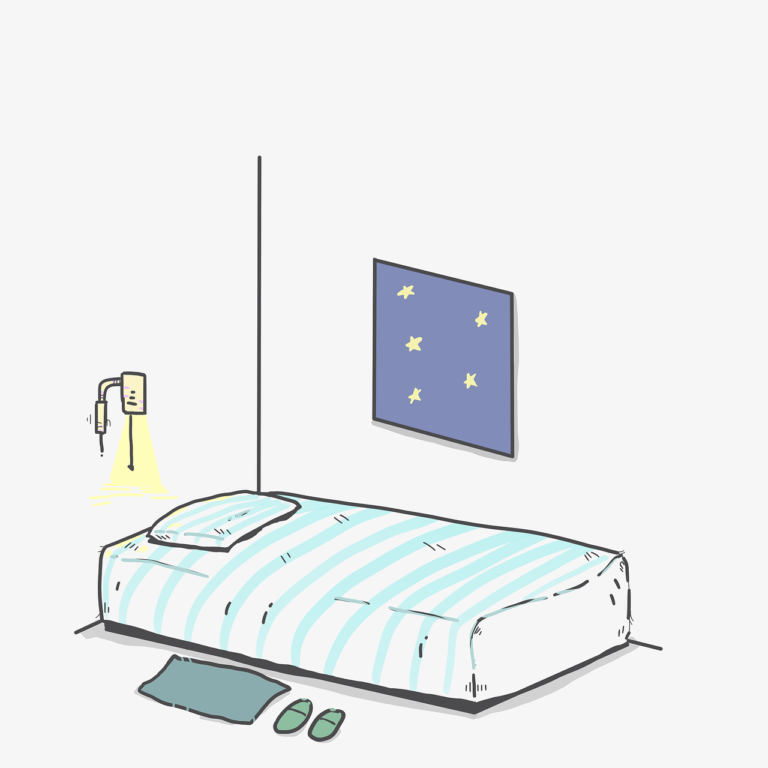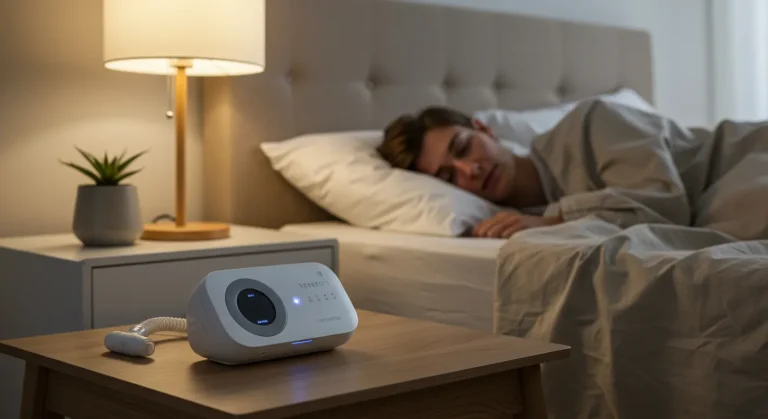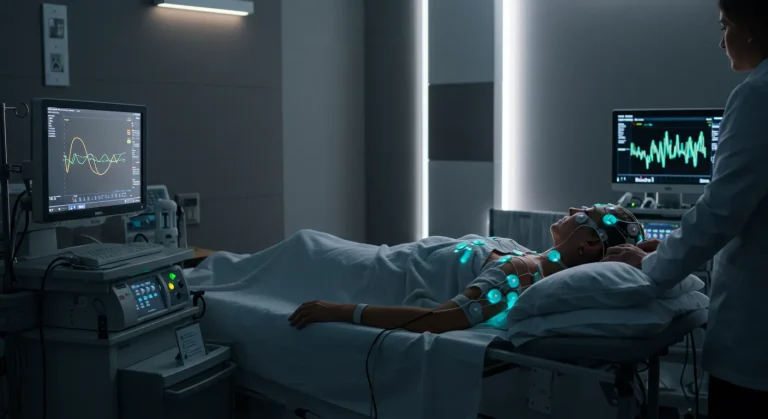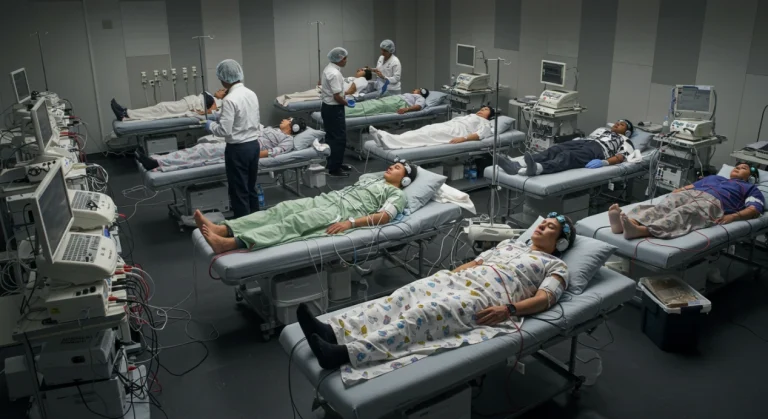Does Technology Usage Before Bedtime Worsen Sleep Patterns In New York City Residents?

Have you ever noticed how your nightly screen time might be affecting your sleep?

The Impact of Technology Usage Before Bedtime on Sleep Patterns
Introduction
In the digital age, the use of technology before bedtime is increasingly common, especially among residents of bustling cities like New York. From catching up on social media to answering late-night emails, the bright screens of our devices have become a staple in our nightly routines. But does this habit come at a cost to our sleep?
The Science Behind Sleep and Technology
Research shows that exposure to screens before bed can disrupt your sleep cycle. This happens primarily because screens emit blue light, which interferes with melatonin production—the hormone responsible for regulating sleep-wake cycles. This disruption can make it harder for you to fall asleep and stay asleep, ultimately affecting your overall sleep quality.
How Blue Light Affects Your Sleep
Blue light exposure can delay the onset of REM sleep, the restorative part of your sleep cycle where dreaming occurs and your body recovers. When REM sleep is delayed or reduced, you can wake up feeling groggy and less refreshed, significantly impacting your performance and mood the following day.
The Role of Melatonin
Melatonin plays a crucial role in your ability to fall asleep. Naturally, melatonin levels rise in the evening, signaling to your brain that it’s time to wind down. However, the blue light from your phone or laptop can trick your brain into thinking it’s still daytime, thus delaying the release of melatonin. Consequently, you might find yourself tossing and turning long after you intended to fall asleep.
Studies and Statistics
Several studies have been conducted to explore the relationship between technology usage before bedtime and sleep patterns. A study conducted by the National Institutes of Health revealed that individuals who used electronic devices before bed had significantly lower melatonin levels than those who did not. Moreover, a survey in New York City found that 70% of respondents who reported using their phones before bed also complained of sleep issues like insomnia and night waking.
| Study | Key Finding |
|---|---|
| National Institutes of Health | Lower melatonin levels in electronic device users |
| NYC Survey | 70% of respondents with pre-bedtime phone usage reported sleep issues |
Practical Tips for Reducing Screen Time Before Bed
While it’s challenging to completely eliminate screen time before bed, there are practical steps you can take to minimize its impact on your sleep:
- Blue Light Filters: Many modern devices come with built-in blue light filters or ‘night modes’ that reduce blue light exposure.
- Limit Usage: Try to put your devices away at least an hour before bedtime.
- Alternate Activities: Replace screen time with other relaxing activities such as reading a book, taking a bath, or practicing mindfulness.
The Broader Impact on New York City Residents
Why NYC is Particularly Affected
New York City, famously dubbed “The City That Never Sleeps,” is a bustling metropolis where the hustle and bustle don’t easily wind down afterhours. The city’s residents are often subjected to fast-paced lifestyles, long working hours, and an abundance of nightlife activities that can make disconnecting from technology a challenge.
The Sleep-Wake Cycle Disruption
With the 24/7 availability of work emails, social media updates, and entertainment options, New Yorkers may find it particularly difficult to create a boundary between their online and offline lives. This lack of boundary can take a toll on their sleep-wake cycles, resulting in a population that is more susceptible to sleep disorders.
Public Health Perspective
From a public health standpoint, poor sleep quality can lead to a range of problems, from decreased cognitive function to higher risks of chronic conditions such as heart disease and diabetes. For a densely populated city like New York, where people are already under stress from various other factors, the addition of technology-induced sleep problems can have compounding negative effects on overall health and wellbeing.
Potential Solutions for New Yorkers
There’s a growing emphasis on promoting better sleep hygiene among New Yorkers. Initiatives like sleep hygiene workshops and educational campaigns about the dangers of pre-bedtime screen use are being launched. Public libraries and community centers are also offering programs aimed at encouraging healthier bedtime routines.

Vector Sleep Diagnostic Center: A Beacon of Hope
About Vector Sleep Diagnostic Center
For New Yorkers struggling with sleep disorders exacerbated by pre-bedtime technology use, Vector Sleep Diagnostic Center stands as a beacon of hope. Under the leadership of Dr. Dmitriy Kolesnik, the center offers specialized treatments tailored to help you regain control over your sleep health.
A Veteran Sleep Medicine Specialist
Dr. Dmitriy Kolesnik is a highly respected sleep medicine specialist with over two decades of medical experience. He is board-certified by the American Board of Sleep Medicine, Psychiatry, and Neurology. Dr. Kolesnik’s deep expertise in both sleep medicine and neurology ensures that you receive a comprehensive approach to diagnosing and treating sleep disorders.
Services Offered at Vector
Vector Sleep Diagnostic Center provides a variety of services designed to address different sleep issues:
- Sleep Studies: Including overnight polysomnography, home sleep apnea testing, and specialized pediatric sleep studies.
- Insomnia Solutions: Tailored treatments to help mitigate insomnia and other sleep disorders.
- Consultation and Education: Comprehensive consultations to assess your sleep patterns and educational resources to help you understand and manage your sleep disorders better.
Comprehensive Evaluations
During your initial sleep consultation at Vector, you can expect a thorough evaluation lasting about an hour. This session will involve a detailed discussion about your sleep history, lifestyle, and any symptoms you might be experiencing. Preliminary tests or questionnaires may also be administered to help specialists gain deeper insights into your sleep patterns.
Specialized Evaluations for Unique Sleep Challenges
If your sleep issues are complex, Vector offers specialized evaluations tailored to offer targeted and effective treatment plans. This comprehensive approach ensures that the root causes of your sleep problems are identified and addressed, helping you achieve lasting improvements in your sleep quality.
Continuous Care and Follow-Up
At Vector Sleep Diagnostic Center, they believe in providing continuous care to ensure that your treatment remains effective and adapts to your evolving needs. This follow-up care ensures that you receive the best possible support throughout your journey to better sleep health.
Empowering You Through Sleep Education
Vector’s commitment to improving sleep health extends beyond direct patient care. They offer an extensive sleep education program, including workshops, educational brochures, and online modules to empower you with the knowledge needed to maintain lifelong sleep health.
Conclusion
So, does technology usage before bedtime worsen sleep patterns in New York City residents? The evidence strongly suggests that it does. The investigation into the science behind blue light and melatonin, the various studies confirming the detrimental effects, and the specific challenges faced by New Yorkers all point towards a clear conclusion: minimizing screen time before bed is crucial for better sleep.
However, solutions are available. Vector Sleep Diagnostic Center, under the knowledgeable guidance of Dr. Dmitriy Kolesnik, provides comprehensive services aimed at diagnosing and treating sleep disorders. With options ranging from insightful consultations to specialized evaluations and continuous care, Vector offers a path towards reclaiming your nights and improving your overall quality of life.
If you find yourself struggling with poor sleep, consider taking that first step towards better sleep health. Reach out to Vector Sleep Diagnostic Center and embark on a journey to reclaim your rest. Sleep well, New York.






